CSOs call for tighter regulation of medical training institutions
“Perhaps on a sad note, with the increase in training facilities, there has been a reduction in the quality of medical doctors we are producing,” Dr Isooba said.
(L-R) Dr.Eric Tabusibwa, Team Lead, Result Based Financing (RBF) unit, MoH, Julius Mukunda, Executive Director, Civil Society Budget Advocacy Group (CSBAG), Patrick Paul Mwanja, Commissioner for Infrastructure & Social Services, Ministry of Finance and Christabel Abewe, Health Financing Officer WHO, Uganda during a panel discussion on the Health Financing dynamics in the wake of dwindling doners funding in Uganda. (Credit: Mpalanyi Ssentongo)
KAMPALA - Civil society organisation (CSO) leaders have expressed concern over the declining quality of Uganda’s medical workforce, particularly from private medical training institutions across the country.
Speaking during a national dialogue held on October 28, 2025, at Protea Hotel, Dr Moses Isooba, the executive director of the Uganda National NGO Forum (UNNGOF), a platform that brings together national and international NGOs, said the quality of medical professionals has declined in recent years despite the increase in training facilities.
“Perhaps on a sad note, with the increase in training facilities, there has been a reduction in the quality of medical doctors we are producing,” Dr Isooba said.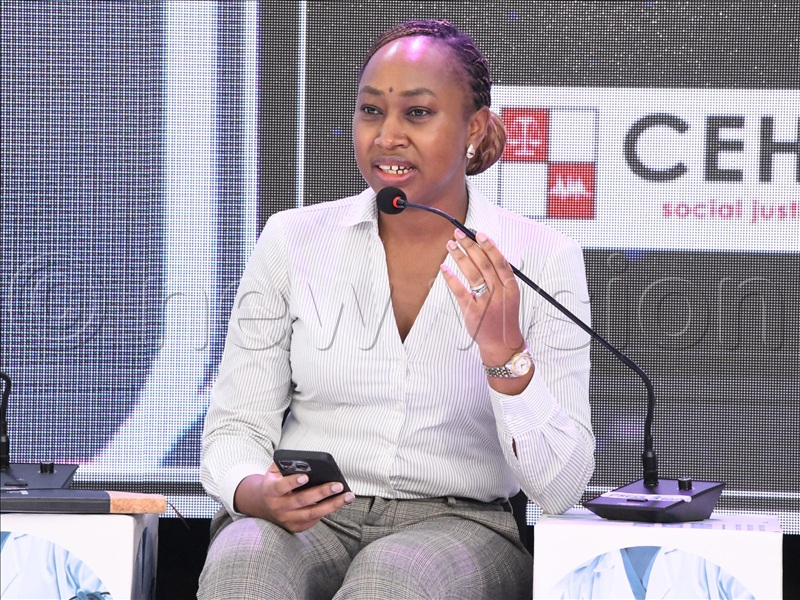
Christabel Abewe, Health Financing Officer WHO, Uganda. (All Photos by Mpalanyi Ssentongo)
“Because of the number of students in these institutions, we are now having doctors who struggle to make a diagnosis. I just hope they do not resort to using ChatGPT to do so,” he added humorously.
He noted, however, that it was reassuring to hear from the Ministry of Health that steps are being taken to address these irregularities.
The dialogue, funded by the European Union (EU), was also attended by Christabel Abewe, health finance officer at the World Health Organisation (WHO), who joined a panel discussion on revenue raising and expanding fiscal space for health amidst global trends and donor shifts.
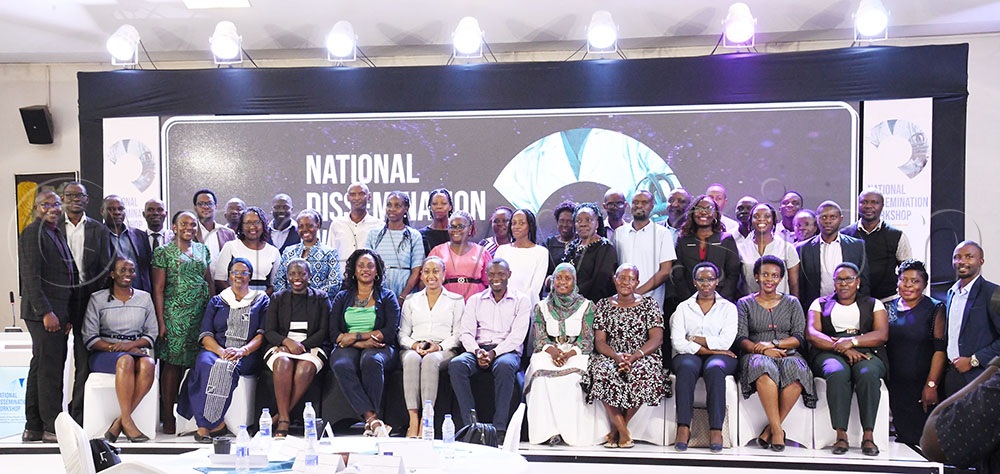
Abewe also echoed Dr Isooba's sentiments on the poor quality of emerging medical workers, saying she has encountered quite a number of these unpolished medics during her visits to various hospitals.
The event was convened by the Uganda National NGO Forum and the Centre for Health, Human Rights and Development (CEHURD). Other speakers included Dr Reginald Rony Bahatungire, a commissioner of health services from the Ministry of Health, who defended his ministry, saying the Ministry of Education is the one mandated with the training of medical workers, but pledged support in ensuring improvements are realised in the sector.
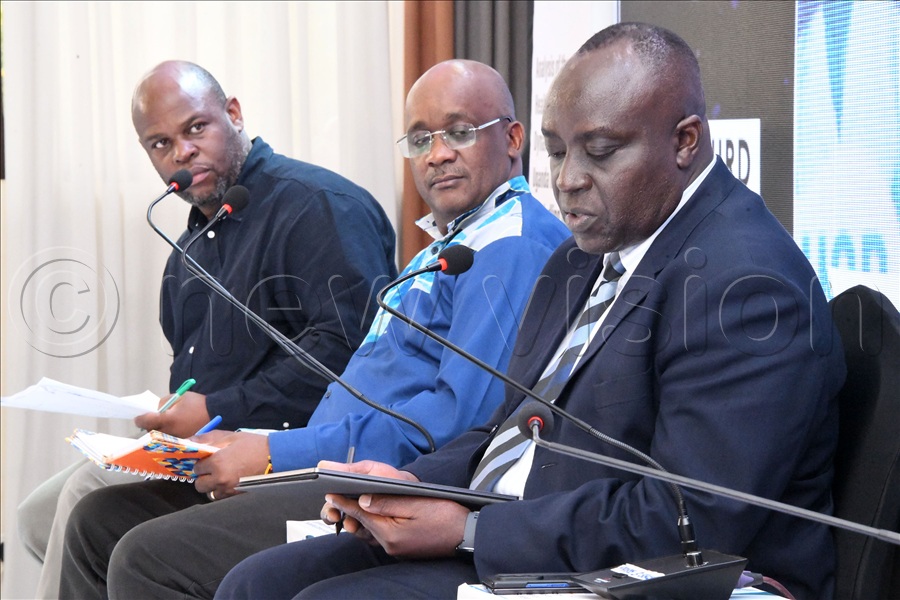
(L-R) Dr. Eric Tabusibwa, Team Lead, Result-Based Financing (RBF) unit, MoH, Julius Mukunda, Executive Director, Civil Society Budget Advocacy Group (CSBAG) and Patrick Paul Mwanja, Commissioner for Infrastructure & Social Services, Ministry of Finance, during a panel discussion on the Health Financing dynamics in the wake of dwindling donor funding in Uganda.
Dr Bahatungire, who joined the dialogue via video call, shared his expertise on purchasing and efficiency, focusing on results-based financing and process or input-based payments.
Meanwhile, Patrick Paul Mwanja, a commissioner for infrastructure and social services from the Ministry of Finance, Planning and Economic Development, discussed revenue pooling, service continuity, risk sharing, and equity.
Uganda’s health sector has historically relied on substantial donor support, accounting for about 45% of the development budget. According to the CSOs, while this external funding has strengthened health systems, it now poses sustainability risks as global funding priorities shift.
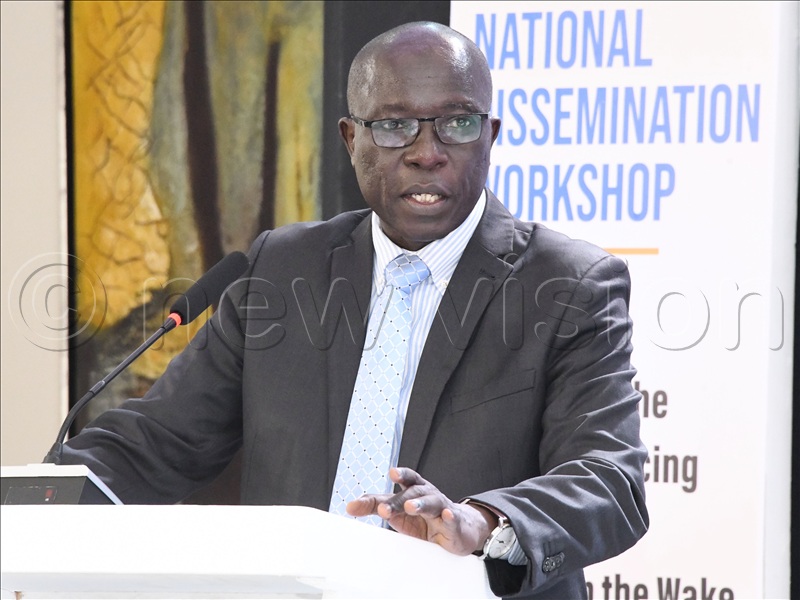
Dr. Moses Isooba
They pointed to donor transition strategies affecting key programmes such as HIV/AIDS, malaria, maternal health, and immunisation, which demonstrate the growing vulnerability of Uganda’s health financing.
Julius Mukunda, executive director of the Civil Society Budget Advocacy Group (CSBAG), who was part of the panel, emphasised the need for stronger oversight of health expenditure.
“Recent studies on health financing show that despite an increase in the health sector budget, citizens are not seeing improvements in service delivery,” Mukunda explained.
The CSOs noted that these financing challenges come at a time when the health sub-programme has been reaffirmed under the Human Capital Development (HCD) programme as a key driver of Uganda’s national development agenda in the forthcoming Fourth National Development Plan (NDP IV) 2025/26–2029/30.
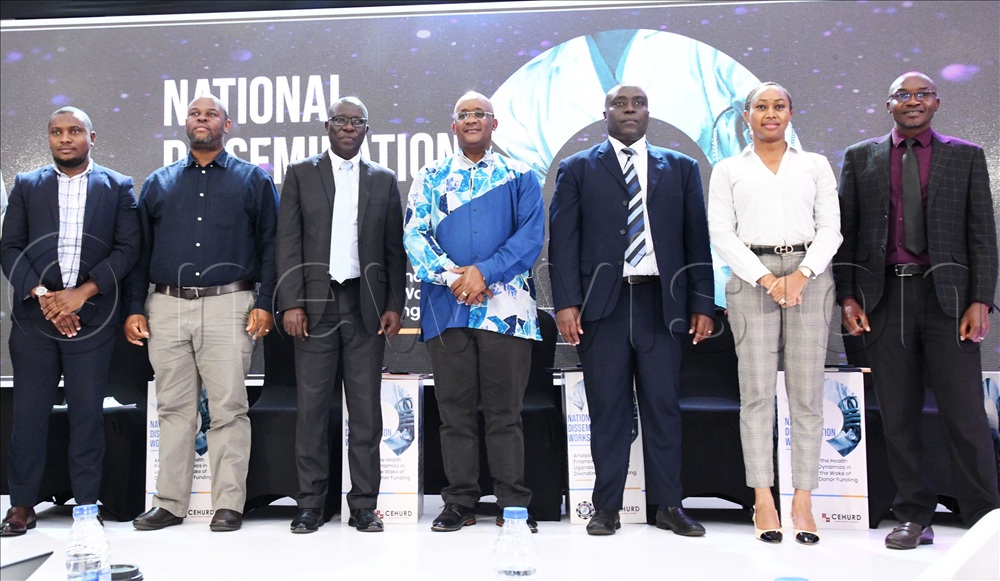
(L-R) Dr.Fahad Mawanda (representing the Director General (MoH), Dr. Eric Tabusibwa, Team Lead, Result Based Financing (RBF) unit, MoH, Dr. Moses Isooba, Executive Director UNNGOF, Julius Mukunda, Executive Director, Civil Society Budget Advocacy Group (CSBAG, Patrick Paul Mwanja, Commissioner for Infrastructure & Social Services, Ministry of Finance, Christabel Abewe, Health Financing Officer WHO, Uganda and Richard Muganzi, Director of Programmes at the Centre for Health, Human Rights and Development (CEHURD). This was during the National Dissemination dialogue on Health financing dynamics in the face of dwindling donor funding in Uganda. This was at Protea Hotel in Kampala on Tuesday, October 28, 2025.
According to the Auditor General’s Report (2023), the ongoing decline in donor support has created significant funding gaps that threaten the sustainability of health service delivery, including continuity, equity in access, and achievement of national health targets.
CEHURD stressed that such gaps undermine progress towards Uganda’s Vision 2040, which recognises that a strong and accessible health system is essential for sustainable development, economic growth, and social well-being.
They urged the government to identify alternative domestic financing mechanisms to achieve Universal Health Coverage (UHC) and enhance resilience against future shocks such as pandemics and climate-related crises.
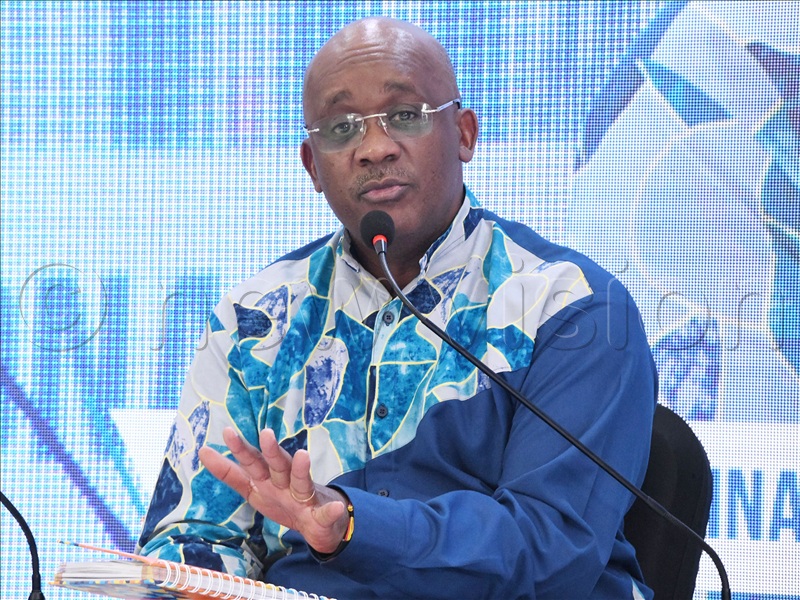
Julius Mukunda, Executive Director, Civil Society Budget Advocacy Group (CSBAG).
The national dialogue also served as a validation and dissemination workshop for findings from a new study on Uganda’s health financing dynamics amid dwindling donor support. It provided a platform for multi-stakeholder engagement, reflection, and exploration of feasible pathways towards sustainable, equitable, and resilient health financing in Uganda.
The event drew approximately 150 participants from a broad spectrum of stakeholders, including local government officials, Members of Parliament, development partners, civil society groups, academia, the private sector, and the media.
Participants discussed practical, rights-based, and politically feasible strategies for improving the health financing landscape while aligning reforms with Uganda’s macroeconomic realities and human rights obligations.